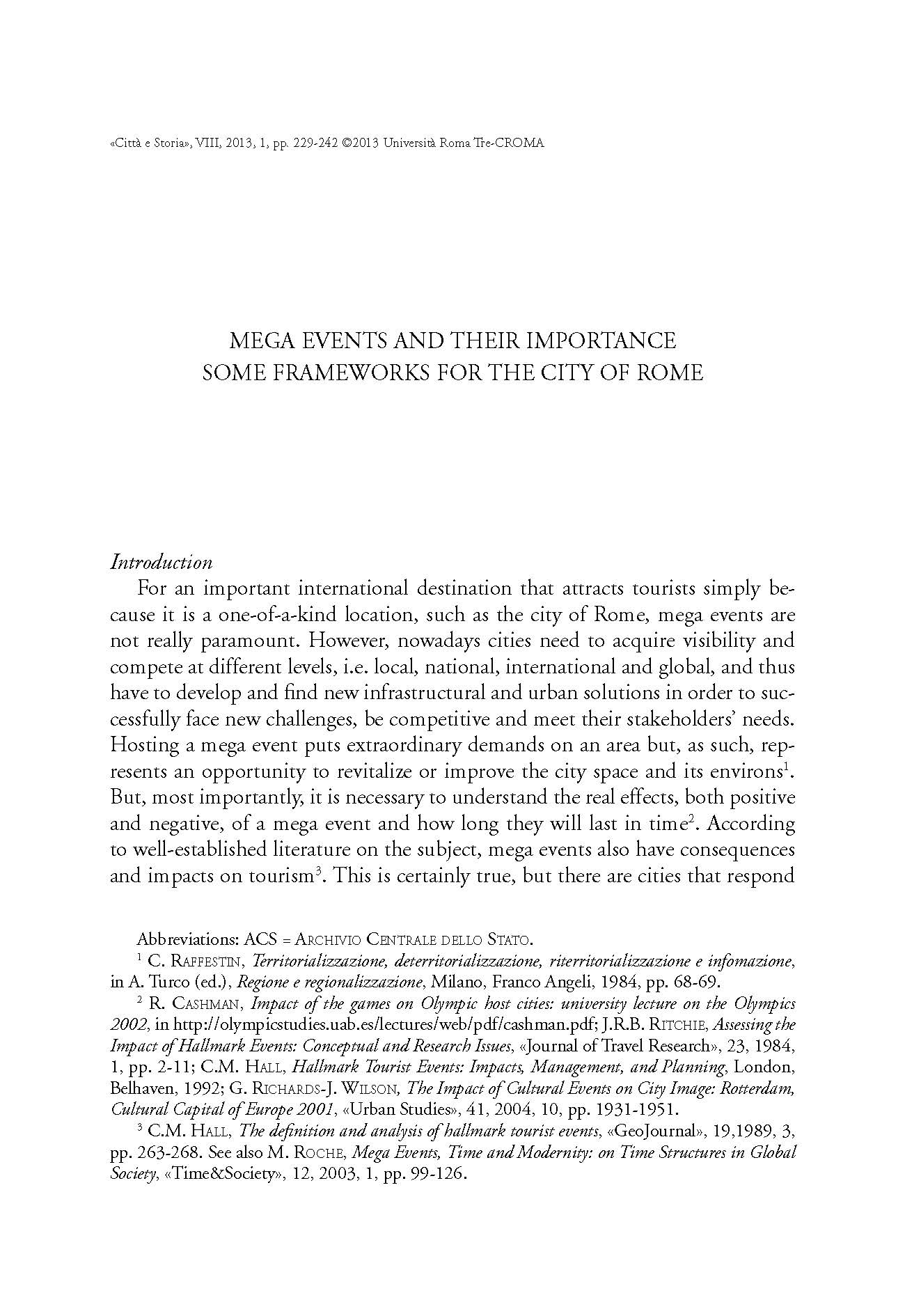Mega Events and their Importance. Some Frameworks for the City of Rome
6,00 €
The spread of new communication tools has “eaten away” at mega events and their strong symbolic value, often reducing them to purely virtual consumption. The success of major sporting events (such as Formula 1 races, the World Championships for all sports or the Olympics) is measured in terms of the size of the television audience. Even assuming that the demand represents the unit of measure for the magnitude of an event, this value should not be confused with the reasons that can justify the creation of a mega event. The definition of a major event needs to be better clarified and this paper will discuss what actually constitutes a great event. This analytical category will then be used to describe a new form of tourism within the context of the city of Rome, but will also make some important international comparisons. In particular, it will show how important this new aspect of tourism is for Rome, which already has such a rich tradition, by examining exactly what the realization of a major event entails, its costs and benefits and its social and economic impact through the analysis of important events that have been staged from the Second World War onwards. This is useful for a repositioning of the city’s territorial competitiveness that has profoundly changed following the crisis of the Fordist model and the processes of globalization which have led to what the urban sociologist Saskia Sassen has called global cities.
The spread of new communication tools has “eaten away” at mega events and their strong symbolic value, often reducing them to purely virtual consumption. The success of major sporting events (such as Formula 1 races, the World Championships for all sports or the Olympics) is measured in terms of the size of the television audience. Even assuming that the demand represents the unit of measure for the magnitude of an event, this value should not be confused with the reasons that can justify the creation of a mega event. The definition of a major event needs to be better clarified and this paper will discuss what actually constitutes a great event. This analytical category will then be used to describe a new form of tourism within the context of the city of Rome, but will also make some important international comparisons. In particular, it will show how important this new aspect of tourism is for Rome, which already has such a rich tradition, by examining exactly what the realization of a major event entails, its costs and benefits and its social and economic impact through the analysis of important events that have been staged from the Second World War onwards. This is useful for a repositioning of the city’s territorial competitiveness that has profoundly changed following the crisis of the Fordist model and the processes of globalization which have led to what the urban sociologist Saskia Sassen has called global cities.

